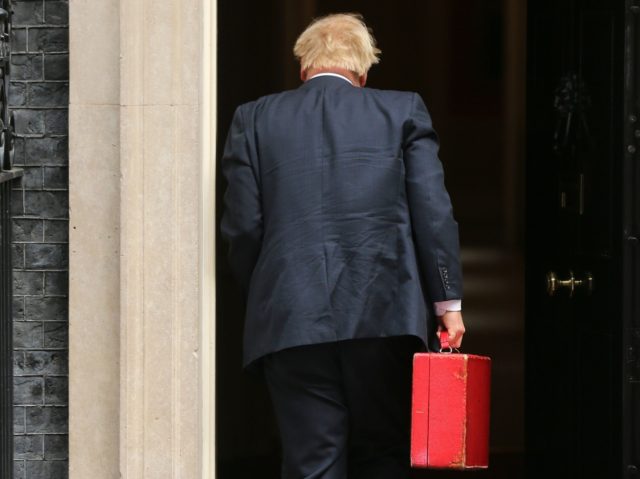The British government will attempt to effectively dissolve itself for the third time later this week according to reports, as the unprecedented stalemate and ceaseless campaign to prevent Brexit within Westminster continues.
While attempting to deliver the decision of the 2016 Brexit referendum, in which the British people gave the largest democratic mandate in the nation’s history in favour of leaving the European Union, the new Boris Johnson government has discovered it is unable to do so as Britain’s parliament is overwhelmingly in favour of the EU. Repeated defeats in the house and outside it, and laws passed compelling the Prime Minister to rule out no-deal Brexit have raised the spectre of a shadow government ruling the United Kingdom without actually taking official office.
In an effort to redress this imbalance which sees a coalition of opposition parties able to defeat the government in every vote, the Prime Minister has already attempted to call a general election twice, both of which have been rejected by the opposition. According to government sources speaking to British newspaper the Daily Telegraph in the wake of the government’s defeat at the Supreme Court, Mr Johnson will put an election forward to a Parliamentary vote for a third time, probably Thursday this week.
Delingpole: A Sinister, Nebulous Shadow Government Is Holding Brexit Hostage https://t.co/gOTAcTeIuD
— Breitbart London (@BreitbartLondon) September 25, 2019
The unnamed source reportedly told the paper: “People should expect a quick push for an early election with a vote in Parliament in the coming days.”
Until recently, a government facing this level of difficulty in actually governing would have already collapsed and gone to the polls, but thanks to an ill-advised law meddling with the British constitution introduced by David Cameron and Nick Clegg, this is no longer the case. In fact, now a hamstrung government needs the permission of the opposition to call a general election, a constitutional anomaly in British history.
In normal times the opposition party would always accept the opportunity to challenge the government and win a general election, presumably believing their policies and beliefs would be more attractive to the British people than those of the party already in power.
Indeed, calls for the Prime Minister to resign by opposition parties have intensified since the Supreme Court ruling, yet the most democratic constitutional apparatus for making this happen — going to the country for a fresh election — has been repeatedly rejected by opposition parties, and it appears unlikely this will change on the third time of asking.
BoJo Compares Endless Brexit Delay to Eternal Torture of Classical Myth in UN Speech https://t.co/LYmaa4I2Re
— Breitbart London (@BreitbartLondon) September 25, 2019
When asked, spokesmen for opposition parties insist they will not permit an election to take place until, in their words, “no deal has been taken off the table”, meaning they refuse to allow an election while it remains a possibility that the United Kingdom could make a full break from the European Union, as was decided in the 2016 referendum.
Why opposition parties acting so nakedly anti-democratically in attempting to stitch up an election by making one possible outcome — an outcome which repeated polling shows is popular with the British people — impossible is hardly challenged by the government or the mainstream media who largely seem to accept the behaviour as perfectly reasonable.
Because the anti-Brexit opposition is now able to dictate to the government, it makes little sense for them to allow an election they may believe they would lose, like turkeys voting for a political Christmas.
It is thought if Labour is able to prevent the Prime Minister from actually delivering Brexit as repeatedly promised on October 31st, they would then agree to a general election as it would likely see Mr Johnson at his weakest — having failed to keep his word and take the UK out on that already much-delayed date, Nigel Farage’s Brexit party would likely be surging in the polls.
My Corbyn may have calculated that with the Brexit Party eating into Tory majorities in pro-Brexit seats across England and Wales the right-wing vote would split, leaving him free to win the election at that stage. Mitigating this risk is Nigel Farage himself, who has made the Prime Minister a peace offering in the form of an electoral pact where Brexit and Tory candidates would not stand against one another inn selected seats.
The suggestion was subsequently rejected with apparent disgust by sources within the government who called Nigel Farage not a “fit and proper” person to be allowed near the levers of government. The Prime Minister himself subsequently confirmed the position, saying “of course” he would not stand down Tory candidates in certain seats.
REPORT: Rees-Mogg Called Supreme Court Ruling ‘Constitutional Coup’ https://t.co/LBCYAjwTnw
— Breitbart London (@BreitbartLondon) September 25, 2019

COMMENTS
Please let us know if you're having issues with commenting.